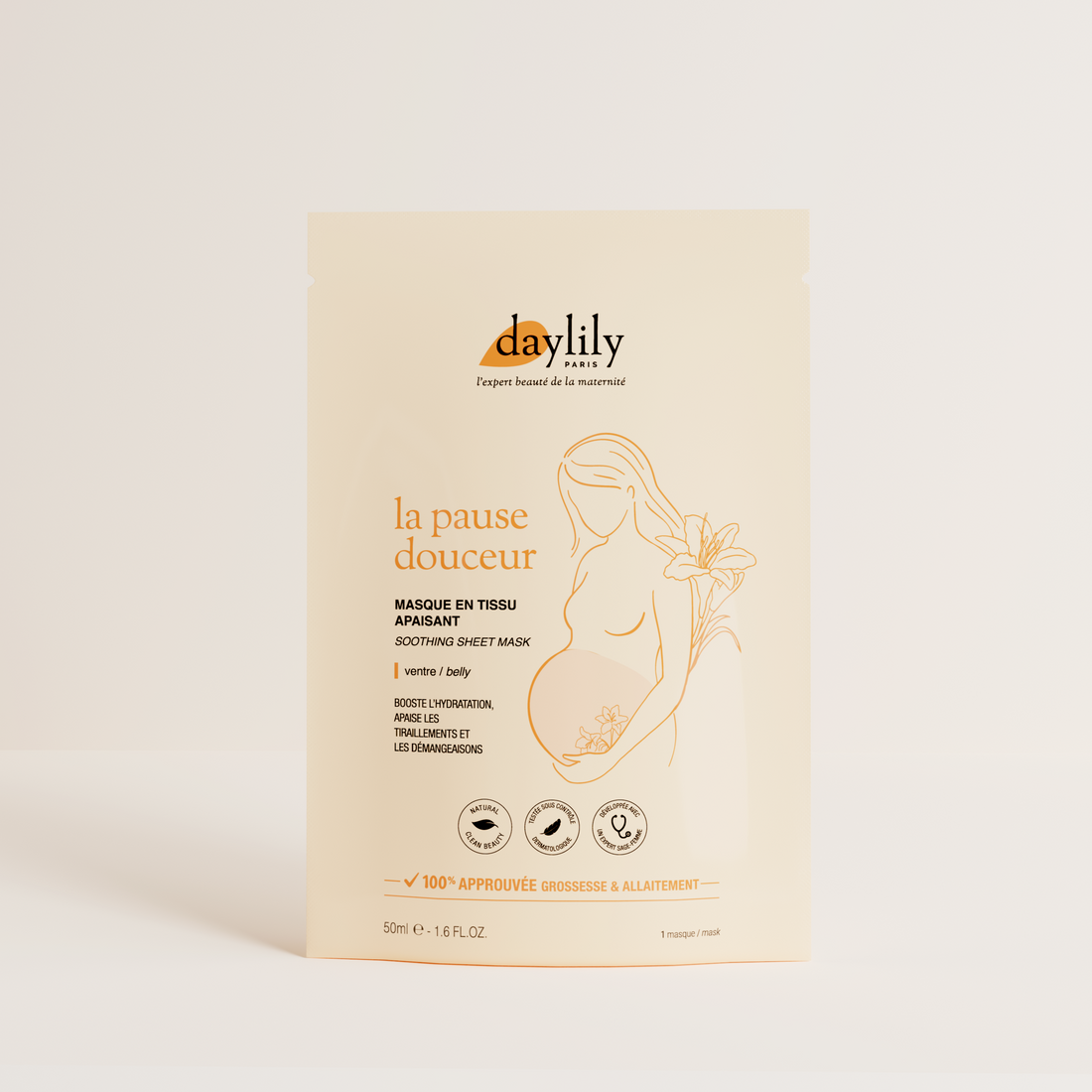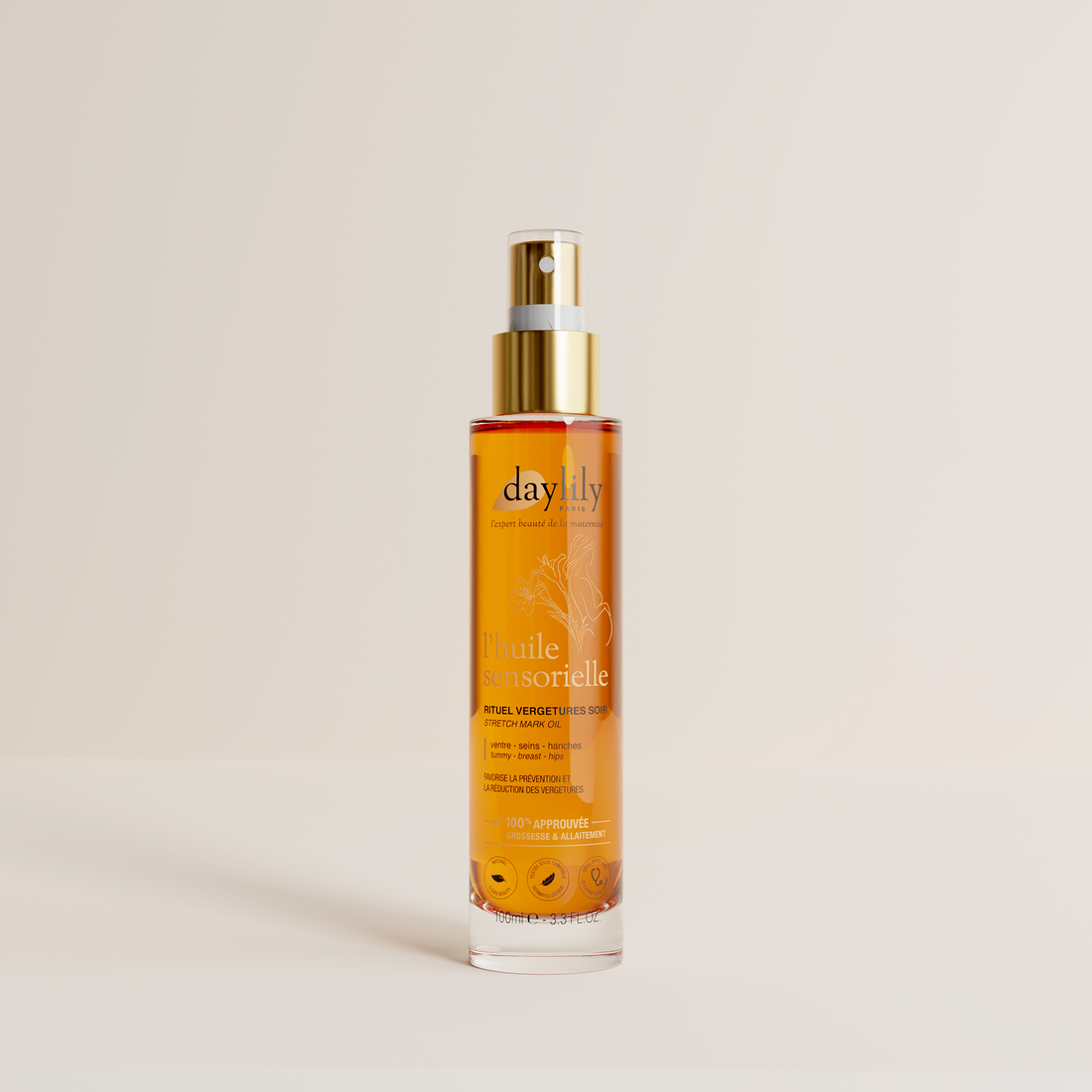- Stress during pregnancy: the mechanisms
- Stress during pregnancy: what are the consequences for the newborn?
- How to manage stress during pregnancy?
Stress during pregnancy: the mechanisms
To better understand the repercussions of stress on a baby in utero, let's go over the basics: how does stress manifest from a physiological point of view, and how can it be transmitted to the baby?
Two points are important for a mother-to-be: when you are stressed, blood flow decreases, but it is precisely this influx of blood that allows the baby to develop properly.
At the same time, in a stressful situation, your body begins to secrete several hormones. The best known is certainly cortisol, which is aptly called the “stress hormone”. Cortisol has the ability to pass the placental barrier, and therefore end up in the baby's blood. A 2017 study confirmed these data: a child in utero feels his mother's emotions, whether negative or positive.
If baby senses your concerns, it is legitimate to wonder what impact your emotional and psychological state may have on his healthy development.

Stress during pregnancy: what are the consequences for the newborn?
The answer is nuanced: if you experience a few stressful moments from time to time, don't panic! The healthy development of the fetus will not be compromised if you miss your bus or if you have an urgent file to submit.
The situation is a little different if you feel under pressure for several weeks (or even during your entire pregnancy), if you cannot relax, and anxiety grips you on a daily basis.
Various studies have been carried out by researchers from all countries, and the data converge towards the same conclusion: stress prolonged in pregnant women presents risks for their unborn child, and can be the cause of various pathologies and health problems. The consequences can be varied, some can appear from birth (sometimes even before childbirth) and others years later.
Thus, stressed future mothers are more likely to give birth to a child of low weight, or to give birth prematurely. When stress comes into play, childbirth can also be more complicated, and the postpartum period more difficult for the mother.
On the baby side, it has been proven through this research that in utero, the growth of the fetus's brain can be impacted, with the connections and organization of its neurons occurring less well during periods of maternal stress.
The baby's physical development can therefore be hindered by maternal stress, but also its cognitive, emotional and behavioral development. A baby subjected to his mother's anxieties may in turn be more timid, more fearful. He is also more likely to experience attention deficits in class, or episodes of depression or feeling sad.
The child is also more prone to developing certain illnesses or pathologies, more or less serious. A Dutch study highlights that eczema, for example, could arise in almost one in two cases from maternal stress experienced by the baby in the mother's womb. Children subjected to maternal stress during pregnancy are also more prone to asthma. Consequences that can be scary, but which you can limit by learning to put your anxiety aside while waiting for your baby.
How to manage stress during pregnancy?
If you cannot manage your stress during pregnancy, and it spoils your joy of expecting a baby, do not hesitate to sound the alarm and speak to a specialist : your gynecologist, Your midwife or GP can help you. They will be able to give you advice and direct you towards natural solutions, such as homeopathy, acupuncture or herbal medicine, which can help you find some calm and serenity. These methods, from the moment they are implemented with a health professional, have the advantage of being without risks for the baby and completely compatible with the state of pregnancy!
To chase away sadness, it is well known, seek comfort : outings with friends, hugs, a good meal, massage, shopping session; take care of yourself and pursue activities without moderation that will give you pleasure and help you forget your worries. Opt for a relaxation session with the application of our Pause Douceur which instantly relieves minor discomforts encountered during pregnancy, in particular tightness and itching. The excess serum allows you to finish this cocooning moment with a gentle massage!
On a daily basis, even when it is a little stress due to traffic jams on the road for example, if you have had an argument with someone or if you have had problems at work, do not hesitate to take a few minutes at the end of the day to talk to your baby and tell him that if you had a peak of stress or anxiety today it is due to this or that situation (describe precisely the emotion felt and what induced her), insisting that he, the baby, is in no way responsible for this.

Certain very specific activities can also help you disconnect and find some serenity. Don't hesitate, they are totally adapted to your state as a pregnant woman and can only do you good. We can cite for example:
- Mindfulness meditation
Meditation is on the rise, and for good reason: it helps you take a step back, understand where your concerns and anxieties come from in order to better manage them. It helps you refocus on the present moment, and free your mind from the negative thoughts that parasitize it. You can practice within an association, in a club, or at home using smartphone applications or CDs.
- Sophrology
Sophrology is a set of relaxation techniques (based among other things on breathing and visualization) which aims to combat emotional upheaval and anxiety. It helps you stop focusing on negative thoughts. It is practiced with a sophrologist, most often individually, but sophrology sessions are also sometimes offered in childbirth preparation classes – proof if there is one that it can bring real well-being to future children. moms. Ask your midwife or maternity ward for more information.
- Walk in nature
Here's an easy solution to implement: walk in a park, in a forest, or in a quiet place to clear your mind and relieve tension. This moderate intensity activity will do you the greatest good mentally (regeneration of the mind, positive thoughts, etc.), but also physically (good oxygenation, activation of circulation, weight regulation, etc.). If your health allows it of course, try to walk at least two to three times a week in a zen environment. Baby in utero also particularly appreciates your walking sessions: he is sensitive from the second trimester to the sounds of nature, and appreciates the gentle swaying of your steps which rock him!
As you will have understood, prolonged stress can be harmful to your unborn child and cause various problems: it should be avoided as much as possible to avoid complications during pregnancy and repercussions on health. of your little one after birth.
Don't forget that even if you have had a tumultuous pregnancy, all the love and joy you will feel when you hold this little being in your arms will help you get off to a good start, that of happiness and serenity!



































